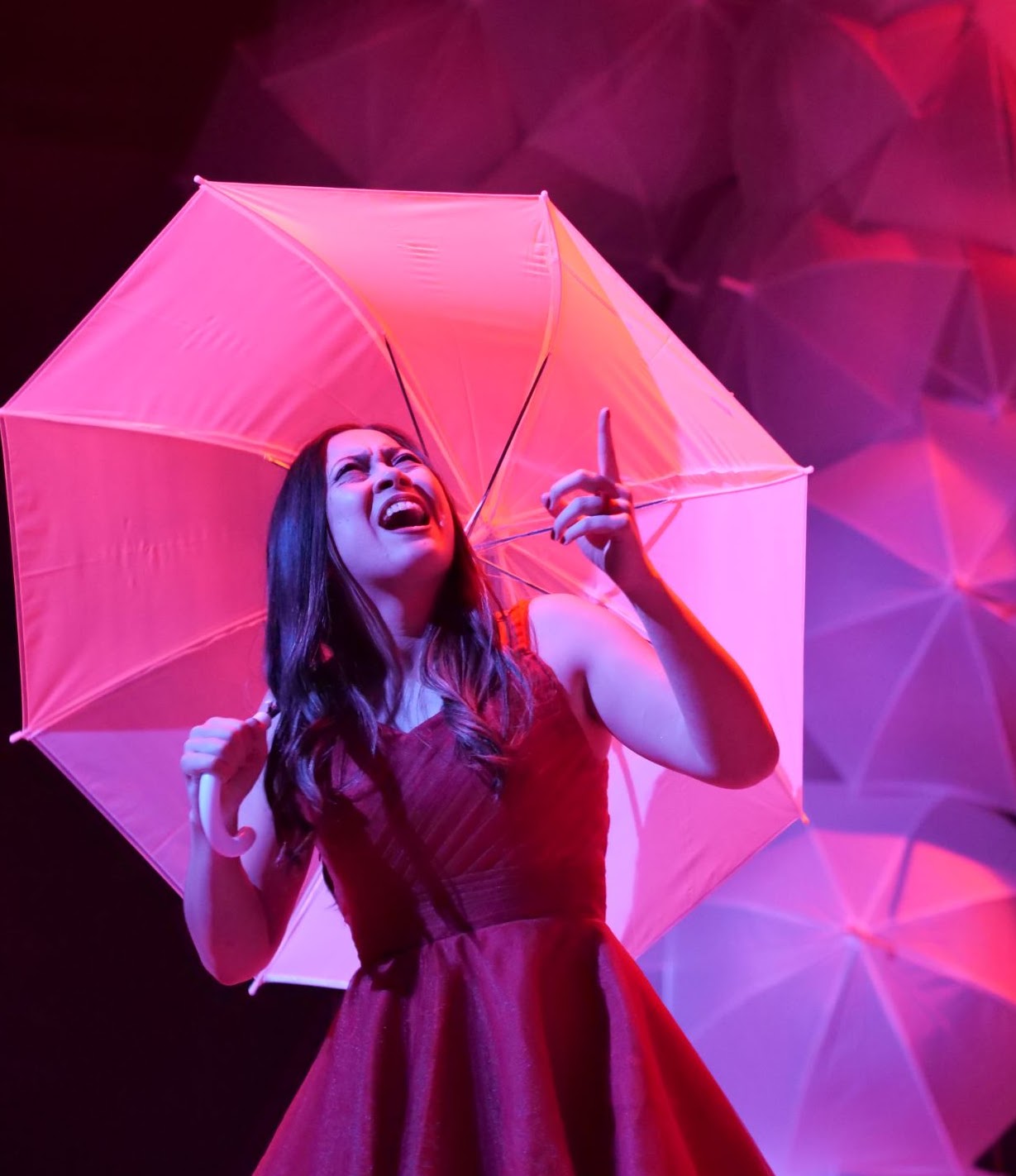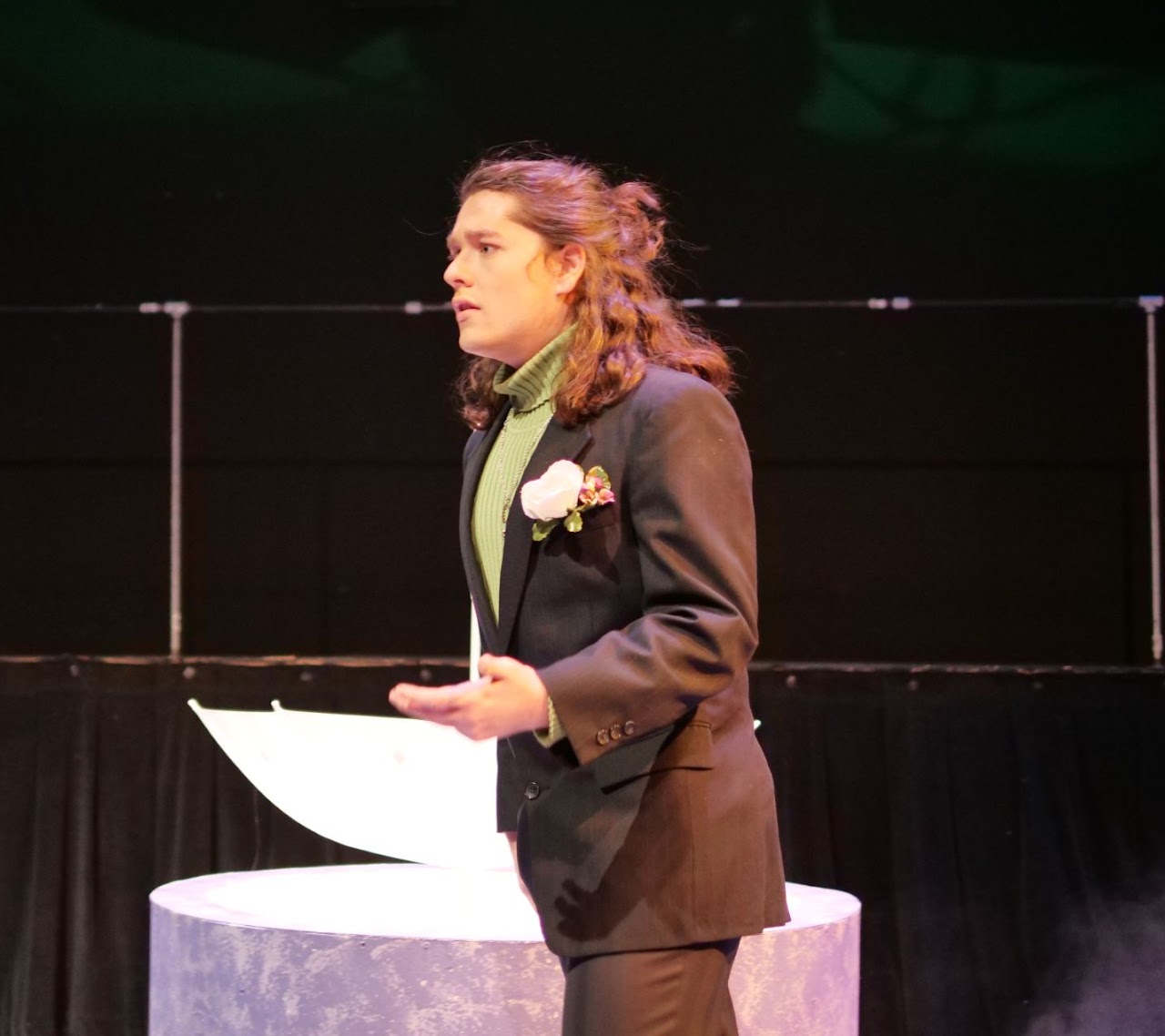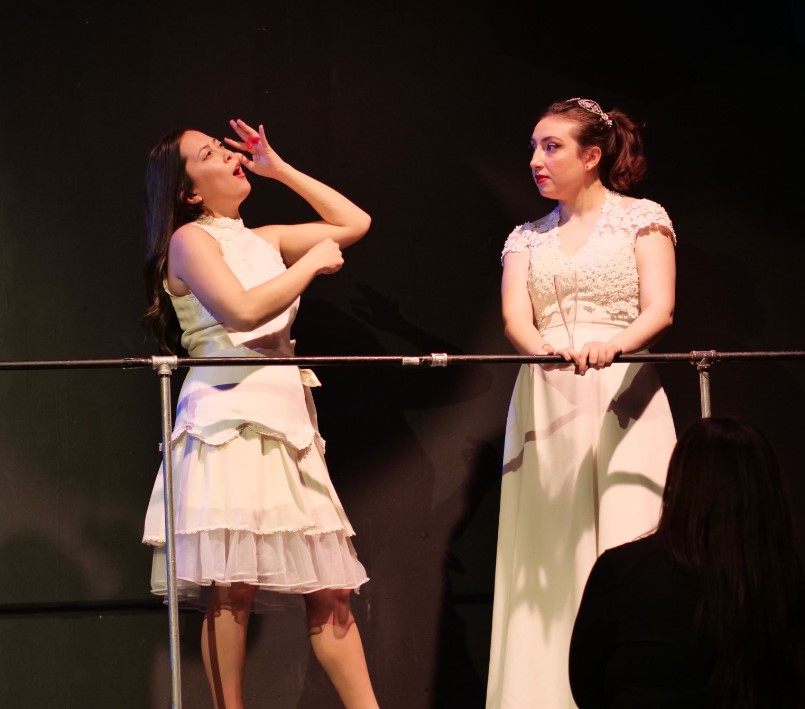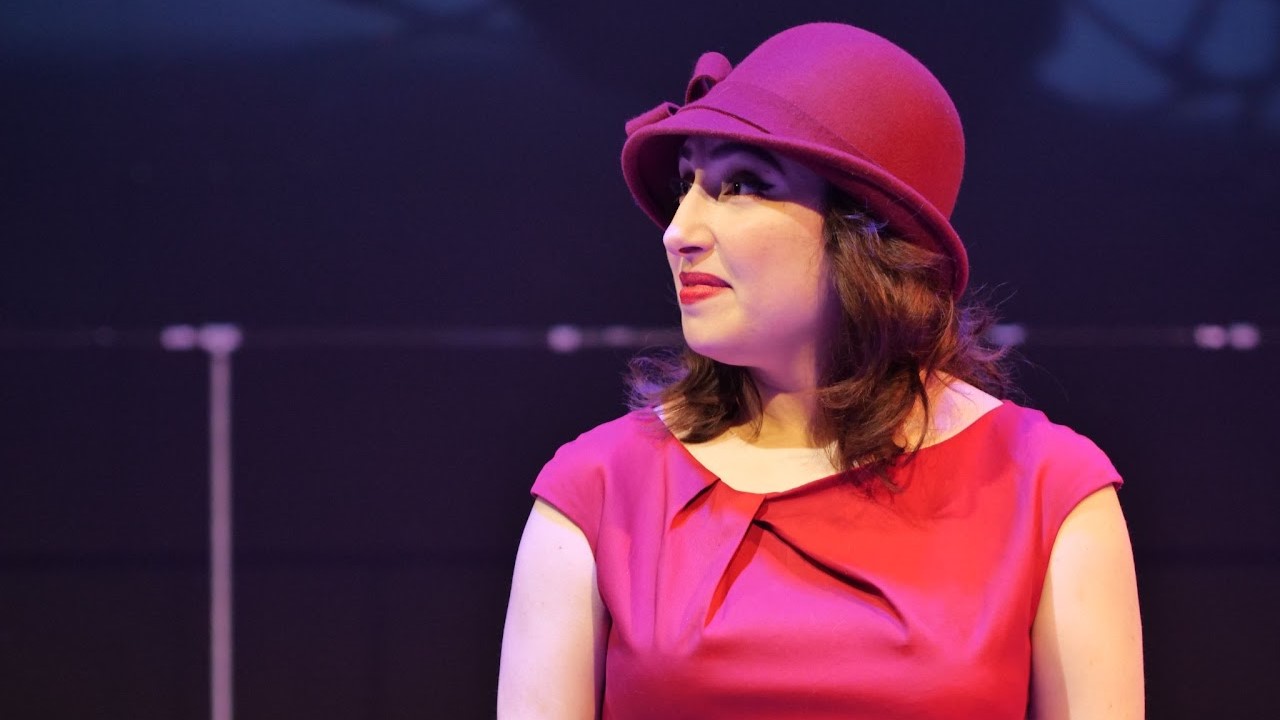SALT LAKE CITY — At a play, I always notice the set first. Often the care put into transforming a stage into the world of a play says so much about what the show might be like. The Blackbox Theatre at Salt Lake Community College’s campus on State Street created a false proscenium arch using white umbrellas lit from behind by LED lights. Center stage there was an upside-down umbrella fountain that ran a continual stream of water until the show’s start. To the audience’s right, there was raised platform set of doors used in the play as an elevator to hell with narrow and uneven steps down. The asymmetry was simple, stunning and a huge credit to the shared vision of Director Elaia Echeverria and her team. Immediately, I my interest was piqued, and the same goes for my 8-year old son who attended with me.

The show that inspired this set is Sarah Ruhl’s version of the Greek tragedy Eurydice. Ruhl’s retelling recenters on Eurydice who is conflicted between the love her her father and husband. Unsure she is truly following Orpheus, she calls out to him and forces him to look back, thus losing her forever until he, too, will return to the underworld and may hope to be with her again. It is a harrowing story.
In this production, the entire story was ASL interpreted. Most characters had simultaneous sign language done by talented performers and certified interpreters Heather Beck and Drake Heap. Eurydice (played by Helen Taylor) only signed through the performance, but had an echo played by a voicing actor, Alia Khajavi. Khajavi countered her physically, emotionally, and even in costume. The production values and the profoundly moving performers were so strong through the entire performance that my son and I were engrossed from start to finish. This in a relatively slow paced (due in part to the intentionality and performance of the ASL interpreting) Greek tragedy, straight play with no intermission. It was easily one of the most impressive things I have seen on a stage in my life.
The show’s engine is Taylor’s powerful expressive performance. Even for me, a person whose ASL skills stop just past fingerspelling, it was easy to tell what Eurydice was thinking and saying through the show before her echo spoke. She was so clear and specific in showing her thought process, reactions to fellow actors, and vitality in each moment that she was a spectacle unto herself. Working in tandem with Khajavi, the pair looked more like sisters reacting independently than a synchronous duo. In one particularly potent scene, Eurydice is pursued by a character simply called “A Nasty Man,” played by Matthew Mencia. He intentionally steps between the two halves of Eurydice and does not allow her to respond as a whole being. The result of this directorial choice from Echeverria and Mencia’s performance was a great deal of dramatic tension, as he is clearly aiming to take advantage of her by isolating Eurydice’s halves. Taylor and Khajavi were otherwise inseparable, and still distinct in playing the part of Eurydice. It was a masterful performance.

The pace of the show was slow, but humor abounded in the play, and it never felt dull. Each character took an almost pointedly thoughtful approach to their work resembling what is often seen in theatre for young audiences. This choice was appropriate, as they found levity in heavy subject matter and joy in simple moments. The language of Eurydice is so simple that it would be easy to do poorly by glossing over lines or rushing it. The ensemble was directed to treat each line with care, and they did so making each word and gesture count in telling a hard story. It was so clear that at the end, my son was talking about how Eurydice reminded him of Ophelia in the production of Hamlet we saw last year. The themes of death, suicide, and assault were crystal clear without being alienating or jarring. I cannot praise effusively enough how effective this was to me as a theatre maker and parent.
I was moved by the performance of Victor Acosta’s ability to play Eurydice’s father. Though Acosta did not appear old enough to have lived through the tragedy of raising a daughter to adulthood and then losing her, he navigated a deep character with ease. I related to him as a father; Acosta so clearly understood the father’s love and goal of making his daughter happy. Each actor in the show was keyed in and hit the right notes, but Acosta especially struck a major chord with my soul.

The technical team aced this production as well. The lights designed by Colter Lincoln were expressive and effective in setting moods and tone. His use of gobos to create texture and color shifts to affect mood was powerful. Similarly, the choice to use shadow puppets (designed by Luke Jensen) and simple props (by Kyle Simons and Sarah Brooder) were strong and effective choices. Just like each word mattered to the performers, no frivolous details were added to a tight and stunning technical presentation of the story. David Knoell’s technical direction was excellent and elevated an already high-caliber show.
Taking my 8-year old was not planned, and I worried that he would be bored. But the opposite happened. SLCC’s production of Eurydice engaged him and moved me to tears. The show excelled at uniting so many challenging production elements. This production of Eurydice stands on the level of any other production in the state, and I would urge readers to see it while you can. There are only so many stories that can make you feel so deeply, and this was one that I felt to my core. I hope SLCC extends the show’s run so I can see it again. Bravo.
[box]Eurydice plays Thursdays through Saturdays at 7:30 PM through April 15 at the Salt Lake Community College satellite campus (1575 South State Street, Salt Lake City). Tickets are $0-10. For more information, visit https://sites.google.com/view/Eurydice/[/box]
